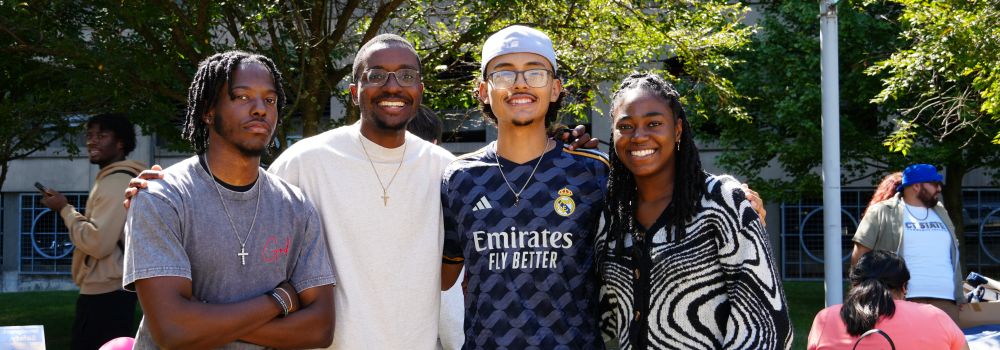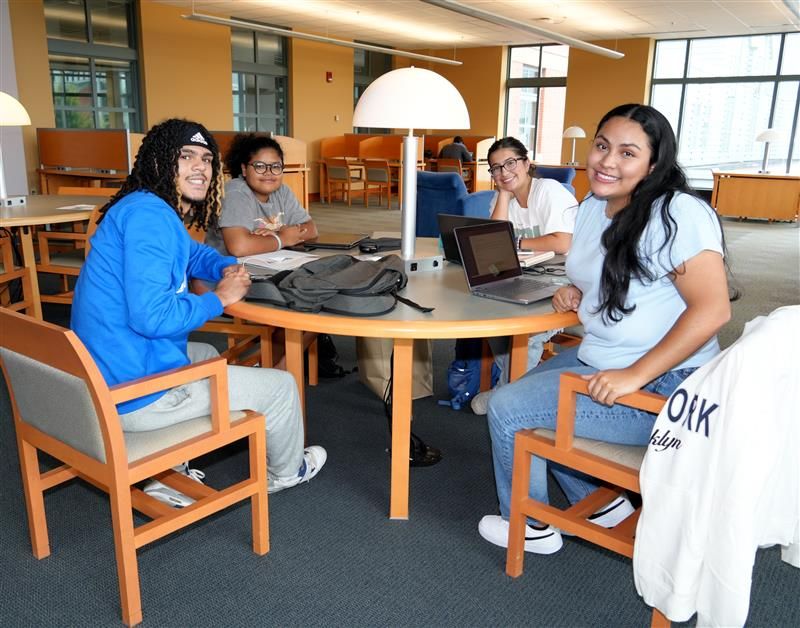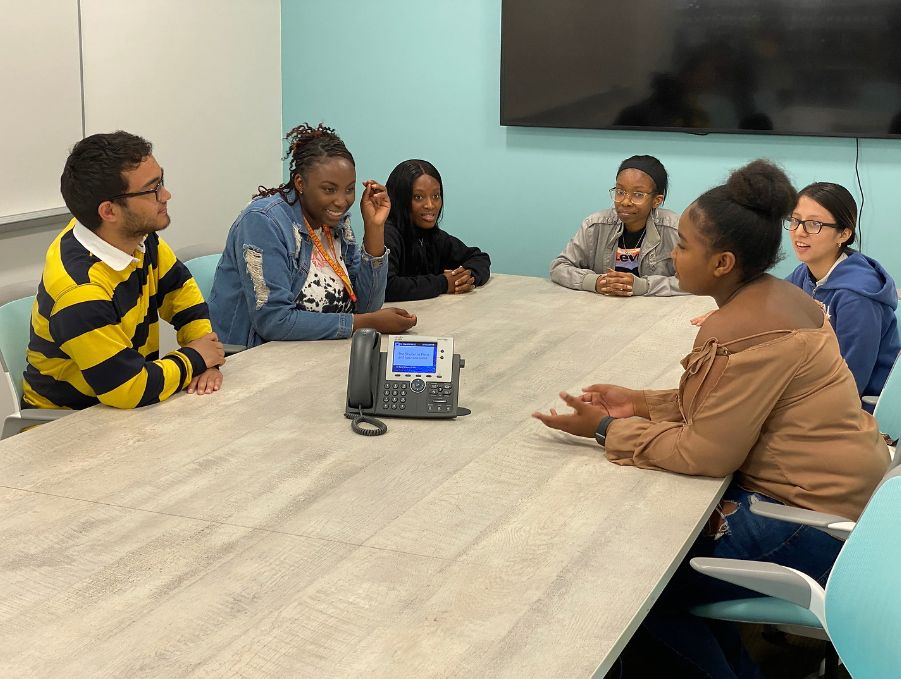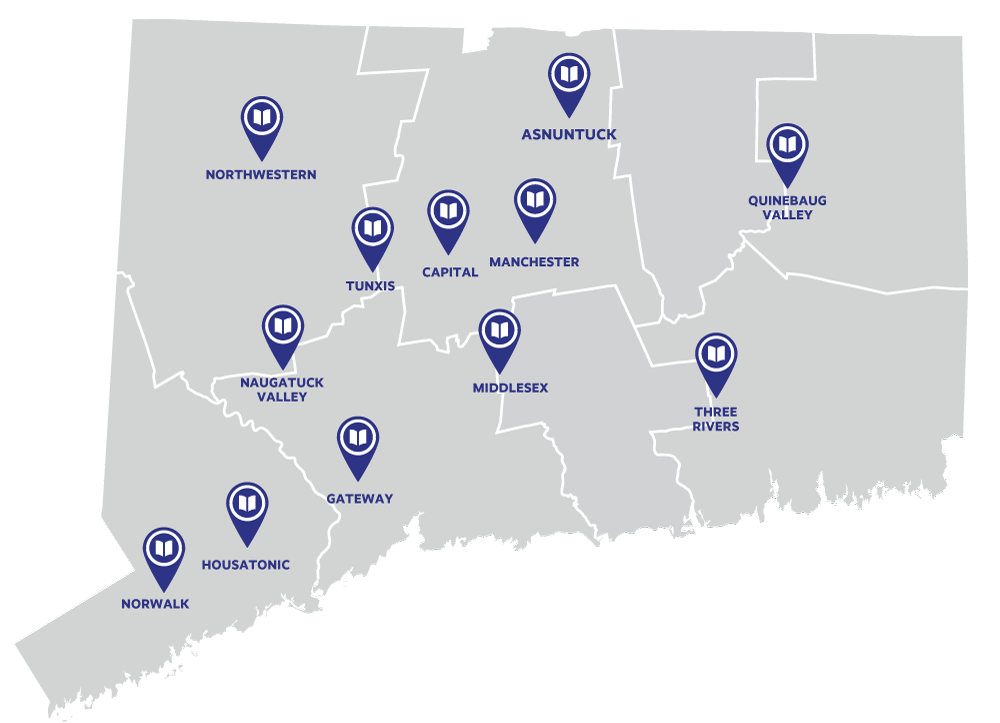Strategic Planning

CT State Community College is embarking on a participatory, collaborative and transparent process to develop its first comprehensive, long-term strategic plan as a singly accredited institution—one that aligns with our mission, values, addresses statewide needs and positions the college and its campuses for sustained success.
As a newly unified institution serving 12+ campuses and many additional satellite locations, we are committed to inclusive engagement throughout strategic planning, bringing together the voices of faculty, staff, students, campus presidents and external partners and stakeholders to shape education and workforce training collectively and innovatively for the 21st century. Grounded in the Connecticut State Colleges and Universities (CSCU) principles of Accessibility, Completion and Talent (ACT) and guided by our “One College, Many Communities” model, this process will help the college chart a path where student success, social mobility and workforce development define our future while recognizing the talented employees who make our mission possible.
Our Mission
Connecticut State Community College provides access to academically rigorous and innovative education and training focused on student success. The college supports excellence in teaching and learning, makes data-informed decisions, promotes equity and advances positive change for the students, communities and industries it serves.

Our Vision
Connecticut State Community College is recognized for exceptional student success, educational leadership and transformative collaboration with business and industry, government, and educational and key stakeholders while advancing diverse opportunities for Connecticut’s citizens and communities.

Strategic Anchors
Guiding principles to help guide and keep CT State grounded during strategic planning and goal setting:
-
Student-Ready and Equity-Minded Culture
- Design systems around student strengths and lived experiences to foster success
- Remove structural barriers to completion
- Prioritize equity for historically underserved groups
-
Pathways
- Offer clear, career-connected academic pathways
- Integrate dual enrollment, workforce credentials and transfer-ready programs
- Focus on economic mobility as a key outcome
-
Workforce, Innovation and Industry Alignment
- Position CT State as the state’s workforce engine
- Co-design training with industry partners
- Respond agilely to economic and technology trends
-
Belonging, Wellness and Holistic Student Support
- Foster inclusive, supportive campus environments
- Provide wraparound services (mental health, food, childcare, etc.)
- Support students’ academic, social and emotional needs
-
Shared Leadership and Community Stewardship
- Embrace shared governance and campus-level empowerment
- Use data-informed decision-making
- Center community voice and partnership in institutional planning
Strategic Planning Values
-
Mission-Centered
Anchored in access, equity, workforce alignment and student success
-
Inclusive and Participatory
Engaging governance, faculty, staff, students and external stakeholders
-
Transparent and Communicative
Regular updates and open channels for feedback to help inform the contents of the final strategic plan.
-
Data-Informed
Based on internal and external scans of data and NECHE direction with measurable outcomes
-
Alignment
Embedded and realistically achievable strategic goals through integration with budgeting, accreditation, academic priorities, operational planning and alignment with the broader goals of the State of Connecticut and workforce partners.

Key Timeline Features
Phase 0
Foundation and Preparation
(August–October 2025)
Phase 1
Stakeholder Education and Campus Operational Planning
(October–December 2025)
Phase 2
Engagement
(August 2025–April 2026)
College President begins engaging stakeholders and identifying campus opportunities and challenges. Committee leads listening tours, focus groups, surveys and broad outreach to internal and external stakeholders.
Phase 3
Analysis and Theme Development
(April–May 2026)
Phase 4
Draft Development and Review
(July–September 2026)
Phase 5
Community Review and Validation
(September–October 2026)
Phase 6
Finalization
(November 2026)
Phase 7
Launch and Implementation
(December 2026–January 2027)
Strategic Planning Steering Committee
Co-Chair: Sharale Mathis, Campus President (Capital, Tunxis)
Co-Chair: Elle Van Dermark, President, College Senate
Tom Bayley: Associate Dean of Campus Operations (Three Rivers)
Peter Bonadies, Associate Professor of Visual Arts (Gateway)
Marie Clucas, Associate Professor of Sociology (Tunxis)
Linda Cocchiola, Associate Professor, ESOL (Capital)
Megan Delivron, Department Chair, Chemistry (Gateway)
Ezechiel Dominique, Academic Division Director, Nursing and Allied Health (Norwalk)
Teresa Foley, Interim Associate Dean of Non-traditional Transition Programs (Asnuntuck)
Ryan Garesio, Professor of English (Northwestern)
James Gentile, Professor of English (Manchester)
Fay Godbolt, Executive Dean, Workforce Innovations and Partnerships (College Office)
Felisha Guirand-Fleurimond, Advanced Manufacturing Technology Coordinator (Housatonic)
Sara Hanson, Associate Dean of Student Affairs (Middlesex)
Debbie Herman, Director of Library and Educational Technology (Manchester)
Jennifer Hernandez, Professor/Coordinator of Human Services (Middlesex)
Gail Kulas, Assistant Professor of Business (Northwestern)
Melissa Lamar, Director of Media and Public Relations (College Office)
Daniel Lestrud, Assistant Professor/Program Coordinator of Culinary Arts and Hospitality (Naugatuck Valley)
Hendree Milward, Professor of Math (Tunxis)
Luciano Mastrangeli, Investigator and Compliance Specialist (College Office)
Gerald Murphy, Department Chair, Business and Technology and Professor of Accounting (Capital)
Mario Pierce, Associate Dean of Campus Operations (Housatonic)
Nancy Prather-Johnson, Dean of Business and Professional Studies (College Office)
Logan Tashea, Campus Supervisor, Financial Aid Services (Quinebaug Valley)
Sarah White, Director of Admissions Operations (College Office)
Meredith Yuhas, Director of Mental Health and Wellness (College Office)
Kelly Zieba, Guided Pathways Advisor (Asnuntuck)
Ex Officio
JD Mathewson, Associate Vice President of Institutional Effectiveness and Planning (College Office)
Nicola Ricker, Professor of Science (Three Rivers), Strategic Planning Fellow
Antonio Santiago, Dean (Danbury) Strategic Planning Fellow
Tom Yelich, Chief of Staff (College Office)